Driving the Tesla Cybertruck Cyberbeast in Europe: Extensive review
By now everybody knows a lot about the Tesla Cybertruck whether they like it or not - one of the most polarizing vehicles to ever come out may only be sold in America, but is talked about globally. The looks, the false promises, or just Elon Musk’s persona, the Cybertruck divides people like nothing else on four wheels.
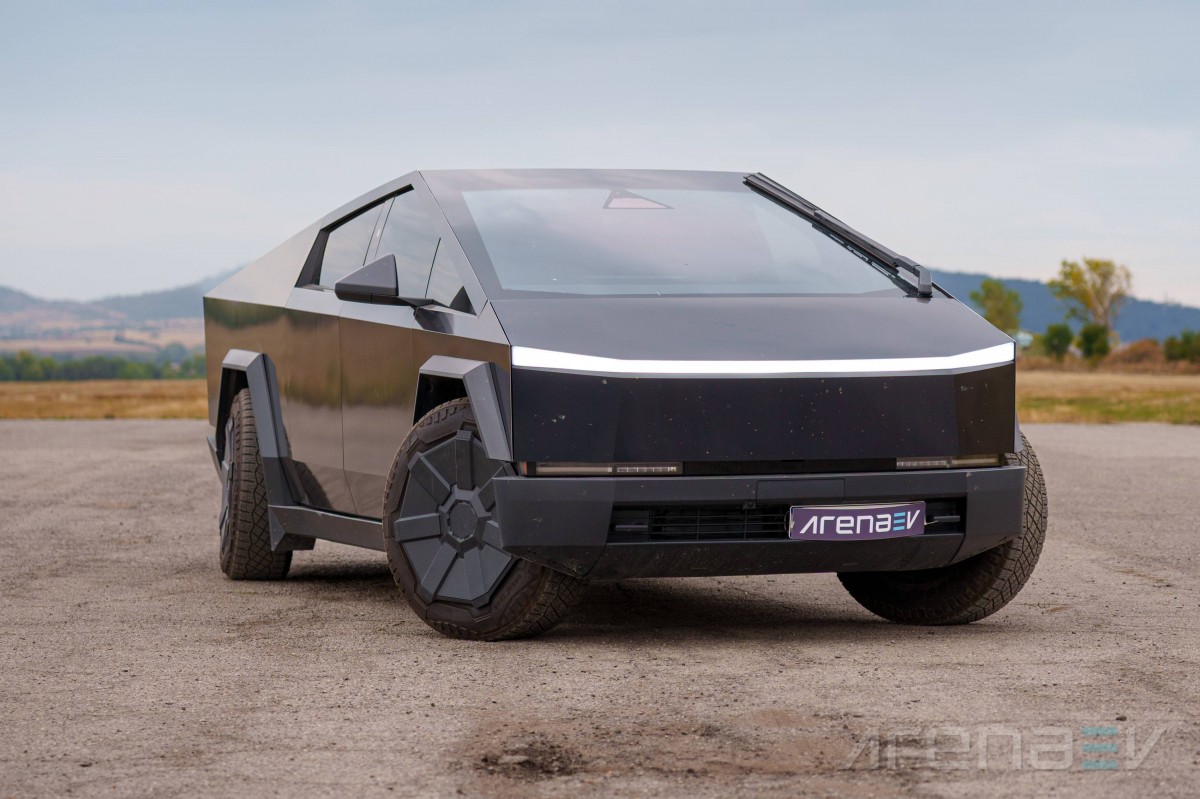
Table of Contents:
- Exterior
- Interior
- Storage & practicalities
- Driving experience
- Ride comfort
- Tech features
- Cabin noise
- Acceleration and braking
- Consumption
- Charging speed
- Competition
- Verdict
That's despite the fact that the novelty of the Cybertruck has worn off and the people who were interested in buying and owning one have already taken delivery (as long as they live in America that is). The steadily declining sales numbers clearly indicate as much.
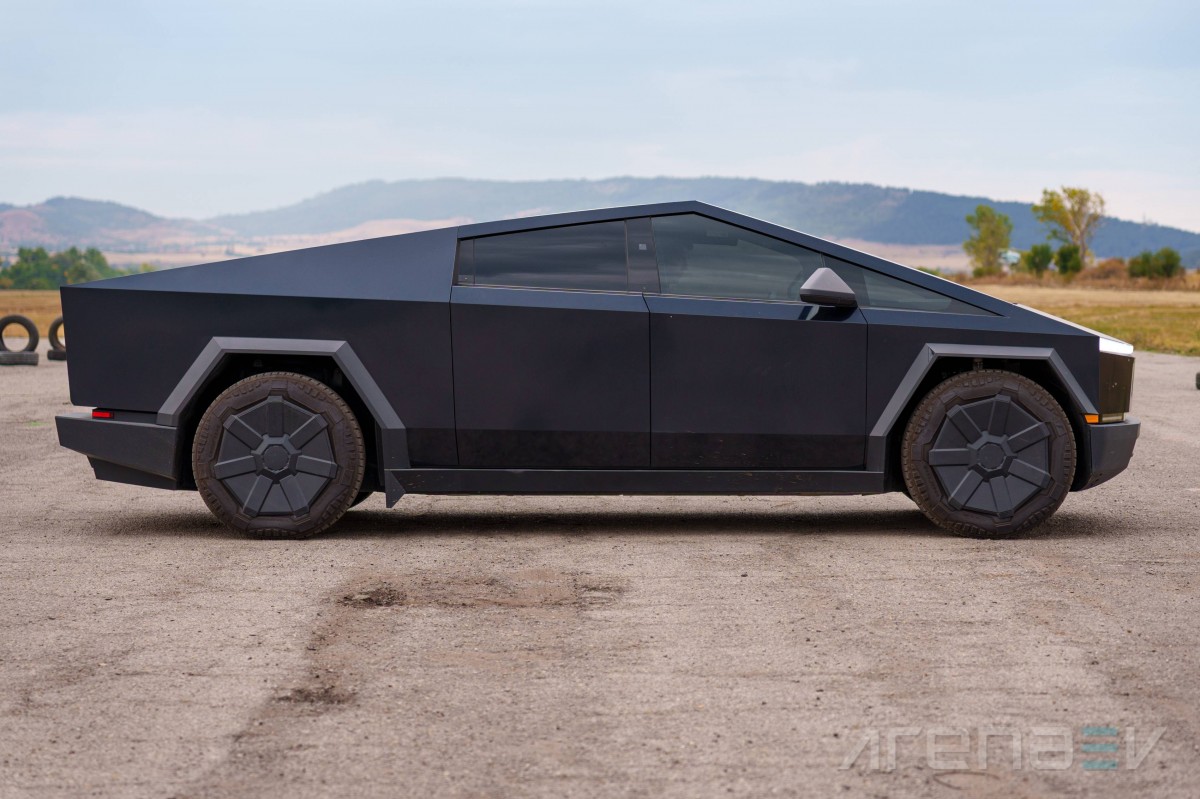
However, we are a European website, based in Bulgaria and still managed to get access to a Cybertruck and see if it suits the European lifestyle. Round here the Cybertruck remains a novelty and we're excited to get in touch with this forbidden fruit.
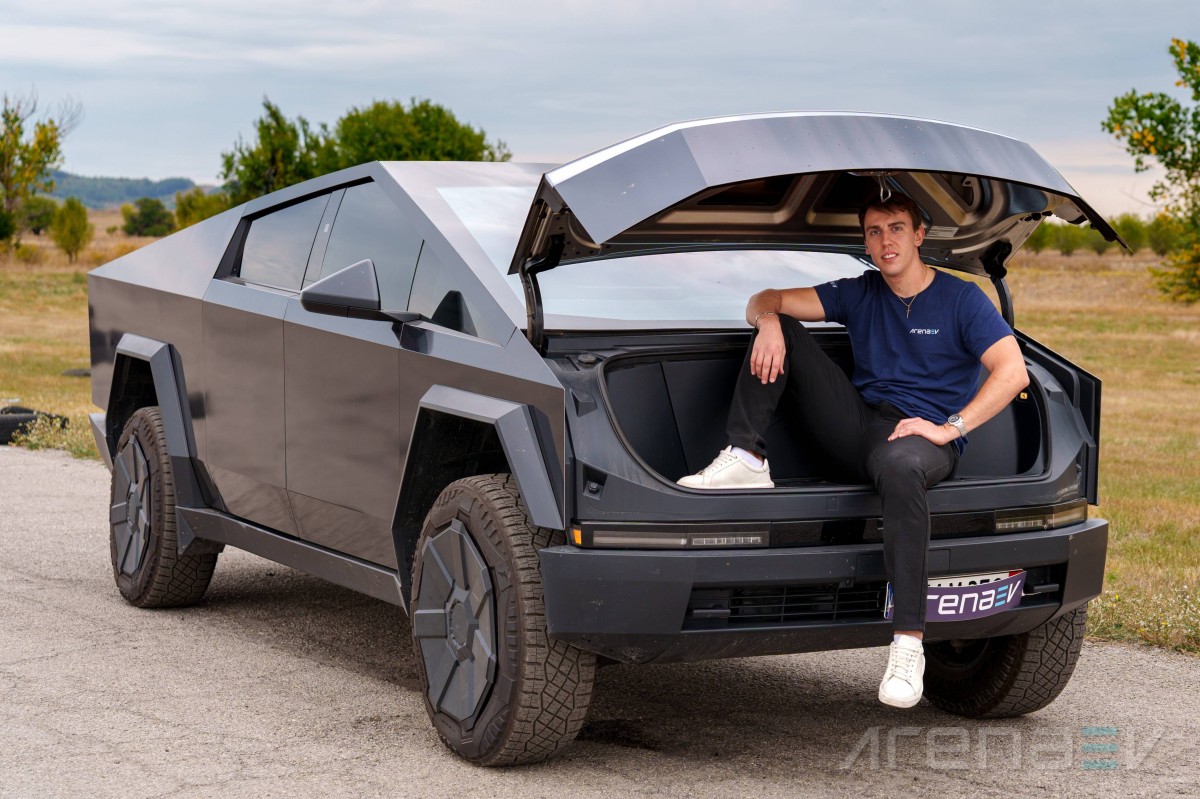
The model we are reviewing today is the Tesla Cybertruck Cyberbeast Foundation Series, which is the most powerful version of the model. It outputs 845 hp and 10,296 lb-ft of torque, accounting for a bonkers acceleration from 0 to 62 mph in just 2.7 seconds. Those numbers would be highly impressive for any supercar, yet they come in a pickup that looks like it's coming from the Mad Max franchise.
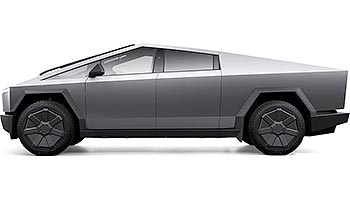
Tesla Cybertruck Cyberbeast 2023 -
- Dimensions: 223.7 inches x 86.6 inches x 70.5 inches, 143.1 inches wheelbase.
- Drivetrain tested: Cyberbeast - AWD 621 kW (845 hp), 10,296 lb-ft, 123 kWh total battery capacity
- Other drivetrains: All-wheel drive - AWD 441 kW (600 hp), 7,435 lb-ft, 123 kWh total battery capacity
- Charging: 250 kW CCS
- Range: 301 miles WLTP
- Weight: 6,843 lb unladen, 9,169 lb gross
- Other features: Rear-wheel steering, Retractable tonneau cover, OTA updates.
Exterior
The Cybertruck's most notable feature is undoubtedly its styling. Shaped as if it's part of a low-resolution 80s video game it is a shocking sight at all times. This wedge shape needs no badging to stand out and therefore there are absolutely no logos or brand labels anywhere on the outside.
The angular front is the primary reason the Cybertruck isn’t readily available in Europe and can’t be easily imported. Its stainless steel alloy panels are almost razor-sharp and may cause severe pedestrian or material damage in case of an accident. The almost-90-degree angle the front bumper and wheel arches meet at is a further safety hazard. The panel gaps are not as bad as some made them out to be but even with the wrap on, the edges are quite sharp.

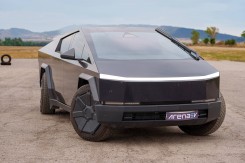
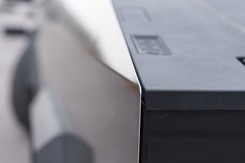
Exterior is sharp and recognizable.
In fact, the frunk (front trunk) closing mechanism became a meme for cutting objects and even fingers. That is yet another reason why it’s unable to comply with European safety regulations and will likely never make it to the EU officially.
We tested if it can be used as a chopping board or a hydraulic press ourselves. Turns out that larger and stronger objects are instantly detected by the sensors and the frunk reopens.
From the front, you notice the famous "world’s largest windshield wiper." Quite the uninspiring title, yet it adds to the uniqueness of the Cybertruck. Since it has only one wiper and it stays up all the time, it accentuates the brute looks.
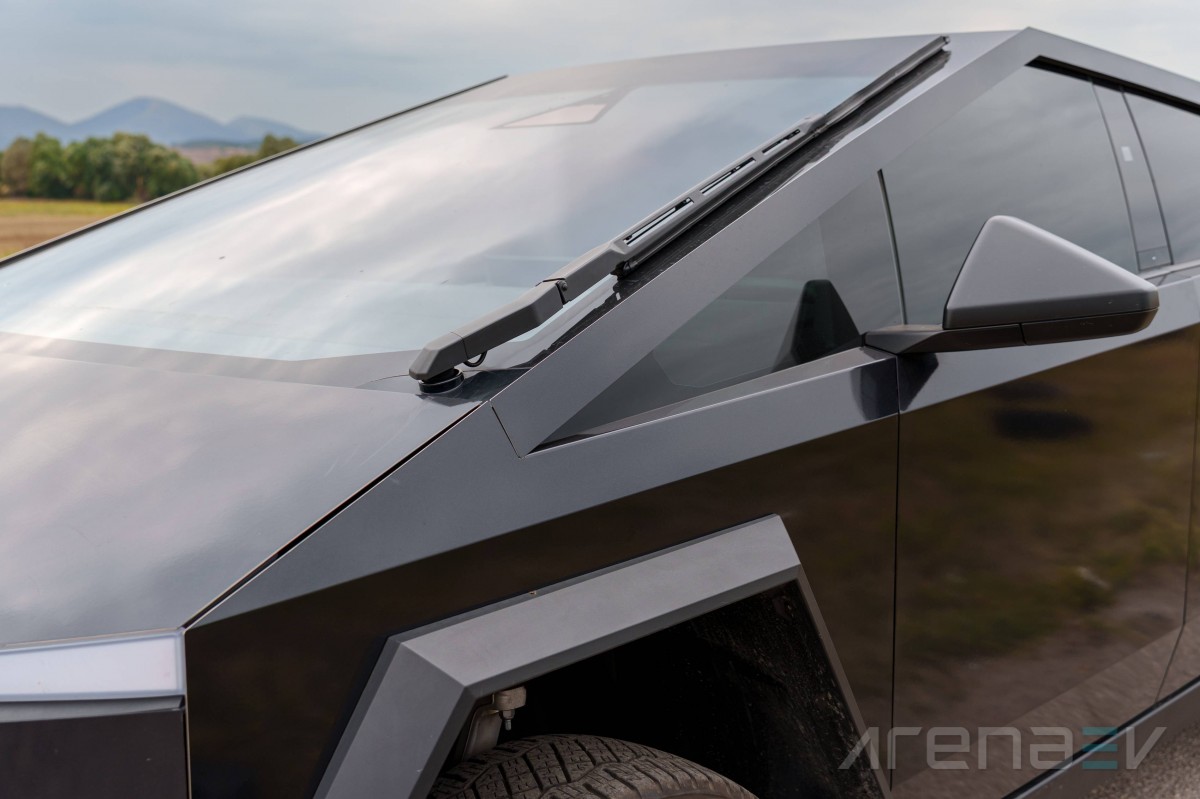
From the side the Cybertruck looks like a pre-school kid's attempt at drawing a pickup truck. The usual separation of cab and bed that virtually any truck has is not there. Instead the bodyline rises continually from the front to the middle of the cabin. After that, it slowly lowers to the rear bumper. The shape looks like an attempt to prove Pythagoras’ theorem with so many right angles and triangles.
Even the side mirrors are triangular and have little in common with any other mirror on the market. They incorporate a huge housing with a tiny mirror inside that takes some getting used to while driving.
Since the A pillar is so deep and reaches almost all the way to the front bumper, Tesla has included a secondary A pillar with a window between the two to increase visibility. Even so there is still a huge blind spot from the driver's spot - we can't imagine how bad it would have been otherwise. You guessed it, the window is triangular as well.
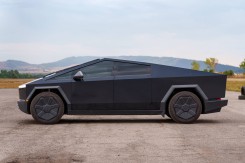
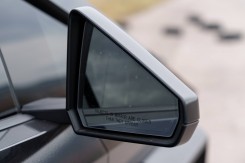
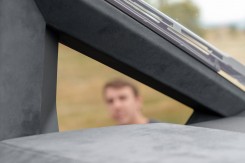
Everything is triangular outside!
The wheels of the Cybertruck are another point of continuous discussions as they come with those huge wheel covers that extend range and add to the outrageous styling. However, they are known to rub into the wheels and slowly destroy them. The owner of our test Cybertruck still has them on, yet Tesla suggests you take them off until it solves the problem.
The tires are not less outrageous with a size of 285/65/20. Goodyear Wrangler Territory RT is an all-terrain tire that Goodyear has produced with a special pattern for the Tesla Cybertruck. These cost about $500 a tire and are hardly ever available. Furthermore, you’ll have to import them from the US since they are only sold there.
You will notice that there are no obvious door handles. Instead, you get buttons on the pillars that electronically pop the doors open and then you pull to enter.
The rear end of the Cybertruck is the tamest design-wise. It is flat and huge, with tiny lights on both ends. The middle section looks like it might be a light bar as it spans from side to side, yet only a small portion lights up for the third brake light.
With the tonneau cover on, the rear looks sleek and if it wasn't for the ultra-sharp edges we'd be tempted to describe it as subtle. With the cover off the Cybertruck starts looking more like a regular pickup truck and the driver can finally use their rear-view mirror to look back through the rear glass.
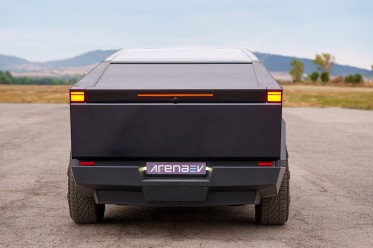

The rear end of the Cybertruck.
Interior
With such a wild exterior you probably expect the same radical treatment inside? Wrong! The cabin of the Cybertruck is just as basic and minimalist as every other Tesla, except much bigger in size.
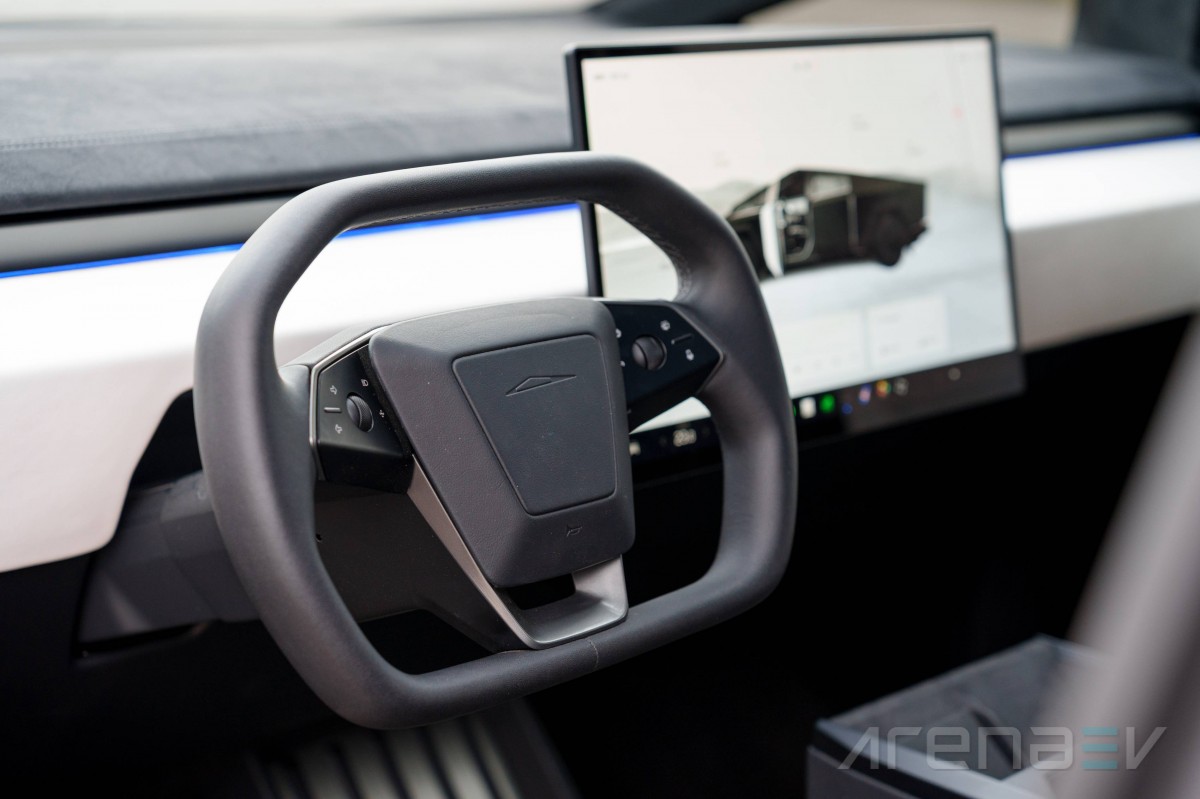
The only exciting thing inside the cabin is the "Cybertruck" script on the door sill, which looks welded to the metal. The font is in a steampunk style, fitting of the dystopian industrial vibe of the entire car.
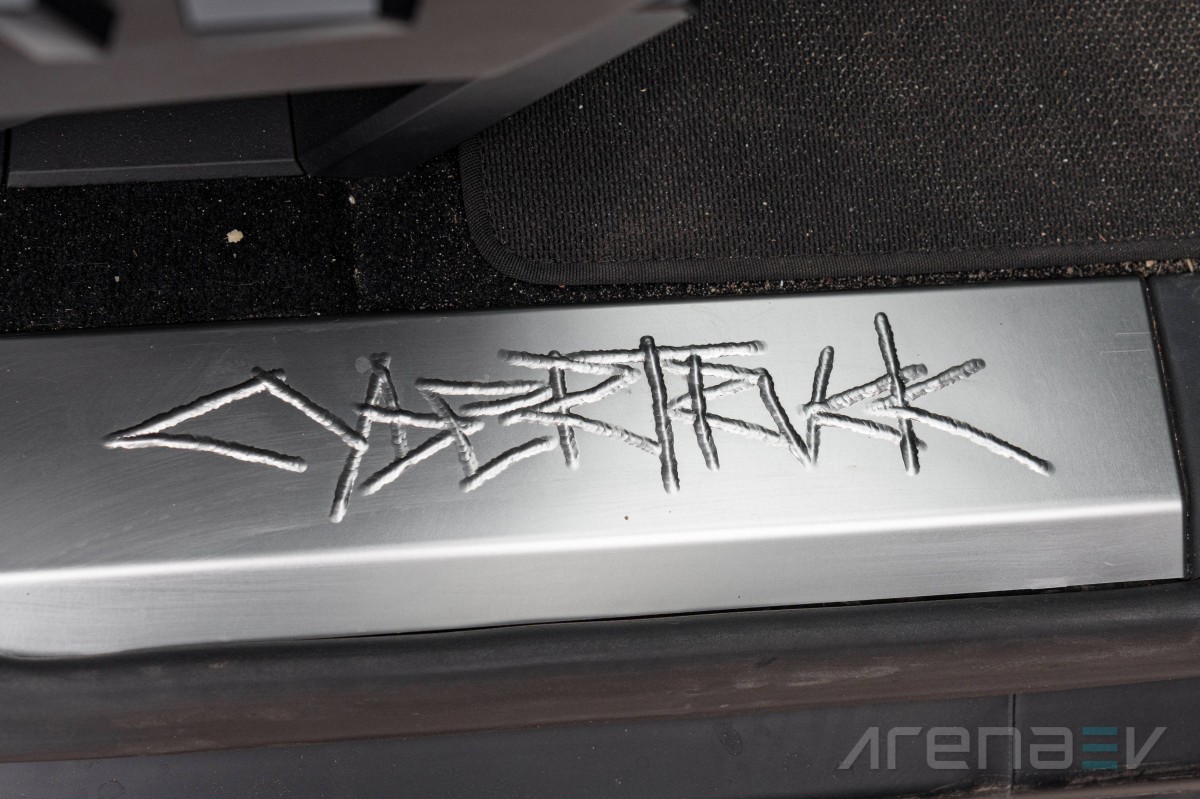
You open the driver's door and are welcomed by a basic interior with an almost empty door card. There are just four unlabeled buttons for the windows and one to open the door. There is also a secondary latch hidden in the door if the electronic release fails. You also get some serious storage space in the doors, fitting for a utilitarian truck with massive doors.
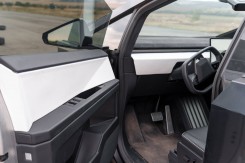
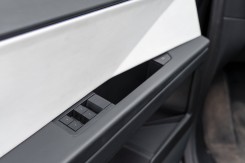
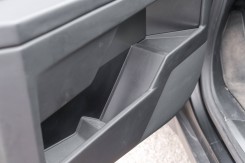
The door sills are simple but useful.
Truly shocking is the sight of the steering wheel, which in the case of the Cybertruck has a squircle shape. Tesla finally gave up on the infamous yoke and while the steering in the Cybertruck still looks futuristic, it is much more usable. The steer-by-wire operation takes getting used to but we'll discuss that in the driving portion of the review.
The steering wheel incorporates the turn signal controls, which are also far from conventional. It is a cool concept some supercars like Ferrari and Lamborghini have been doing for a while now but the way they do it is cleverer. They have their controls in the respective parts of the steering wheel, whereas Tesla has shoved both left and right blinkers in the same vicinity, making it a challenge to press the right key without looking.
You also get buttons for the wipers and flashing the high beams. Each side of the steering wheel gets a scroll wheel to control the audio and autopilot, which also doubles as something else when you need to use it for the infotainment. Tesla has been doing this ever since the Model 3 first debuted and most customers are used to this by now.
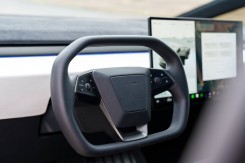
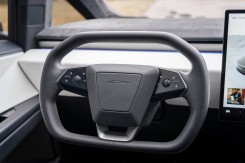
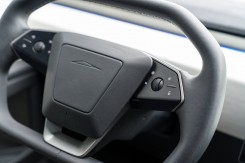
The squircle takes a lot of getting used to.
You get no gauge cluster display or stalks behind the steering wheel in the Cybertruck. Instead, you get a gigantic dashboard that spreads almost all the way to the headlights up front. It is a nightmare to clean and creates plenty of unusable space but that is the result of the extravagant body shape.
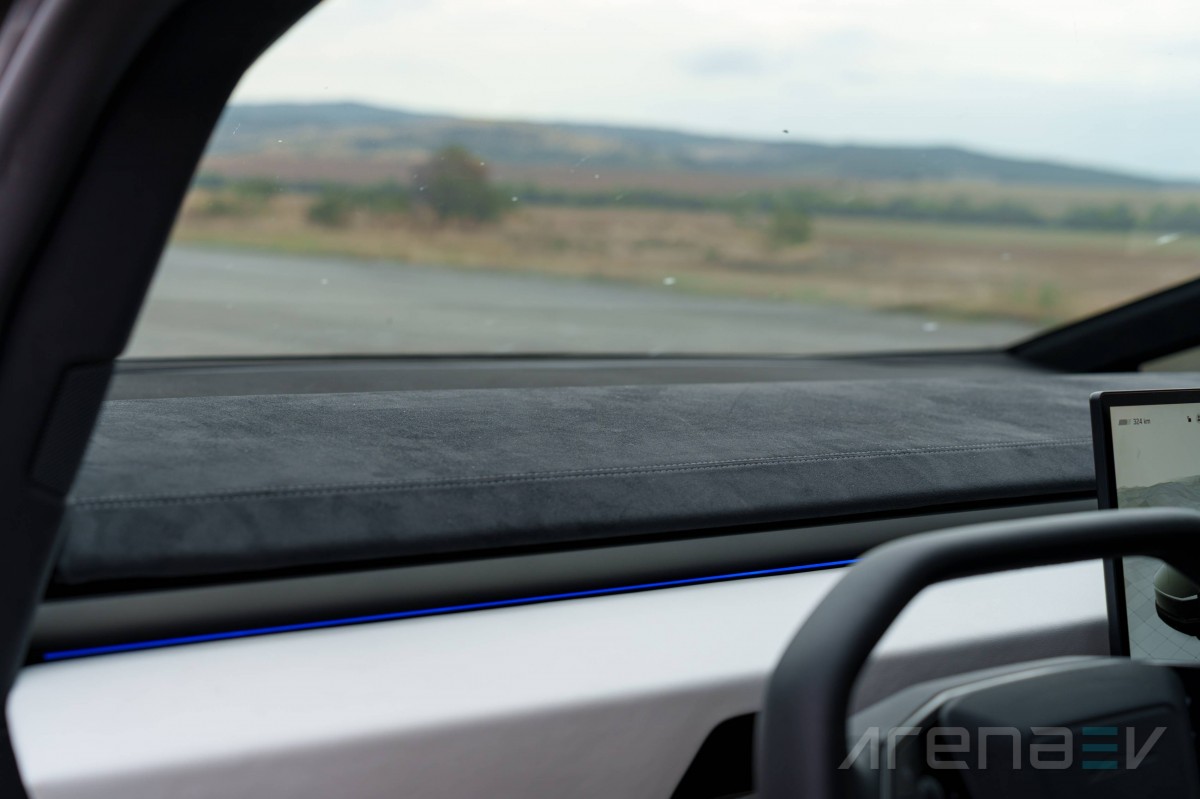
The center display is a huge 18.5-inch horizontally mounted unit. It is the biggest display in a Tesla model so far. Typically, it works flawlessly and has instant response. The left side of it is occupied by the gauge cluster while driving, but you can use the entire screen for infotainment when stationary.
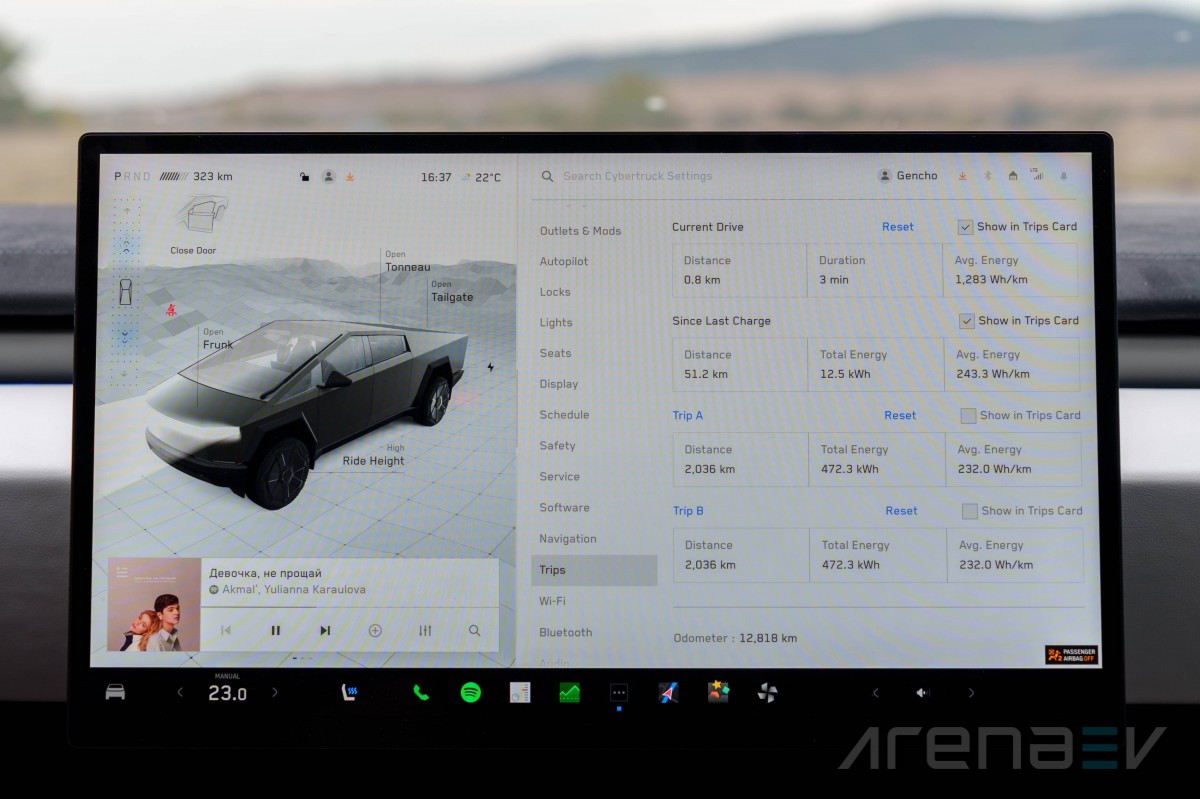
There is no tunnel in the middle of the cabin and instead you get a metal plate with ridges for storage. It looks utilitarian and it is, allowing you to store all kinds of items in close proximity to you.
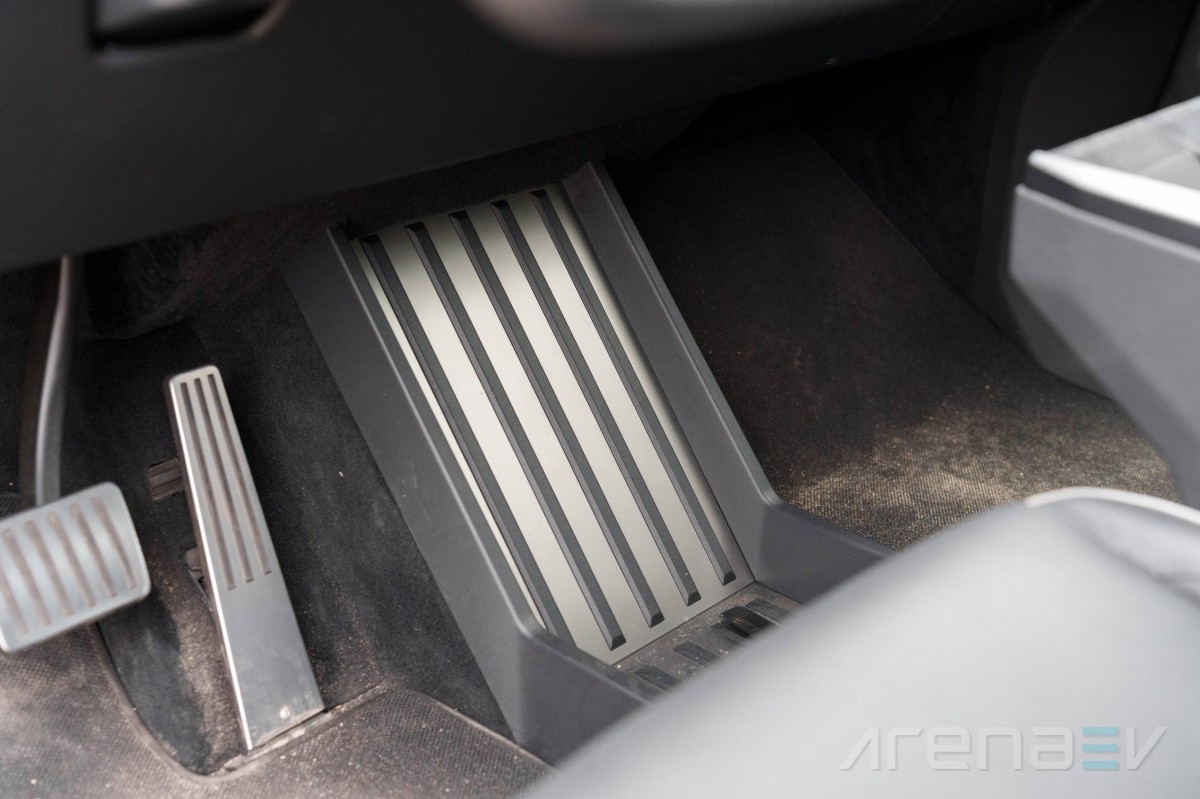
The actual center console raises between the front seats and combines charge ports, cupholders and the armrest.
In typical Tesla fashion you can adjust the storage space beneath the armrest to have multiple floors, adding to the practicality and daily usability.
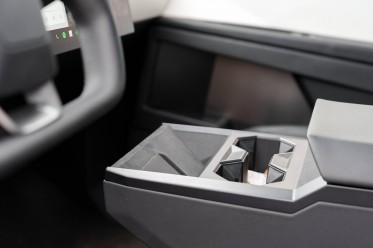
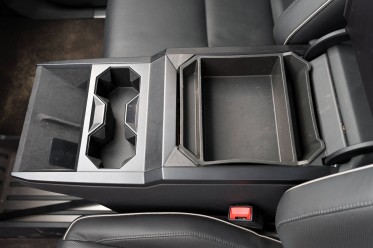
A very practical center console!
The leather seats are comfy and have no sporty characteristics at all. After all the purpose of the Cybertruck is allegedly utility. It just so happens to be blisteringly quick. Once you sit inside you get no urge to push the Cybertruck to its limits in corners, just occasionally to be the quickest off the line at a traffic light.
As the test unit is a Foundation series model, you get all the optional extras and a subtle "Foundation series" inscription on the passenger side of the dashboard. You get one on the fenders on the outside, as well, but because of the wrap it's not visible here.
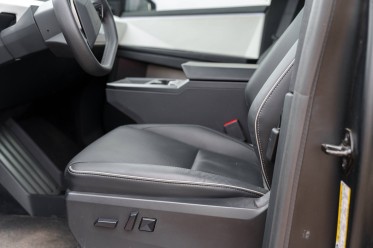
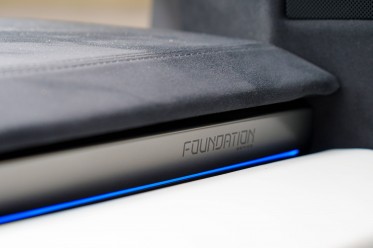
Foundation Series comes with every option.
The eccentric exterior of the Cybertruck allows for a cool feature on the inside. The windshield glass spans all the way to the end of the front row seats. When you remove the sun visor to the side, you get a clear and unobstructed view up front, which gives you a unique sensation of space.
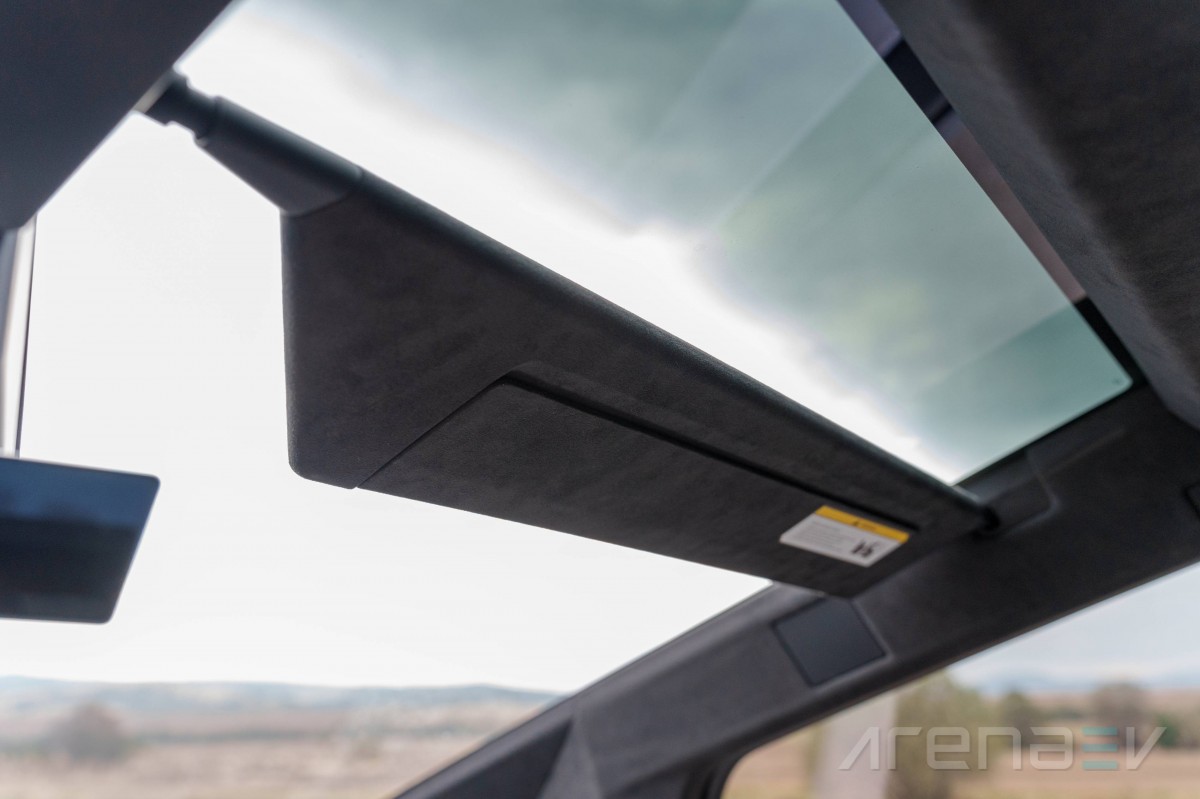
The gear selector is a small portion of the touchscreen where you slide your finger in the direction of travel you desire. However, in case of emergency you can also use the buttons placed over the rear-view mirror.
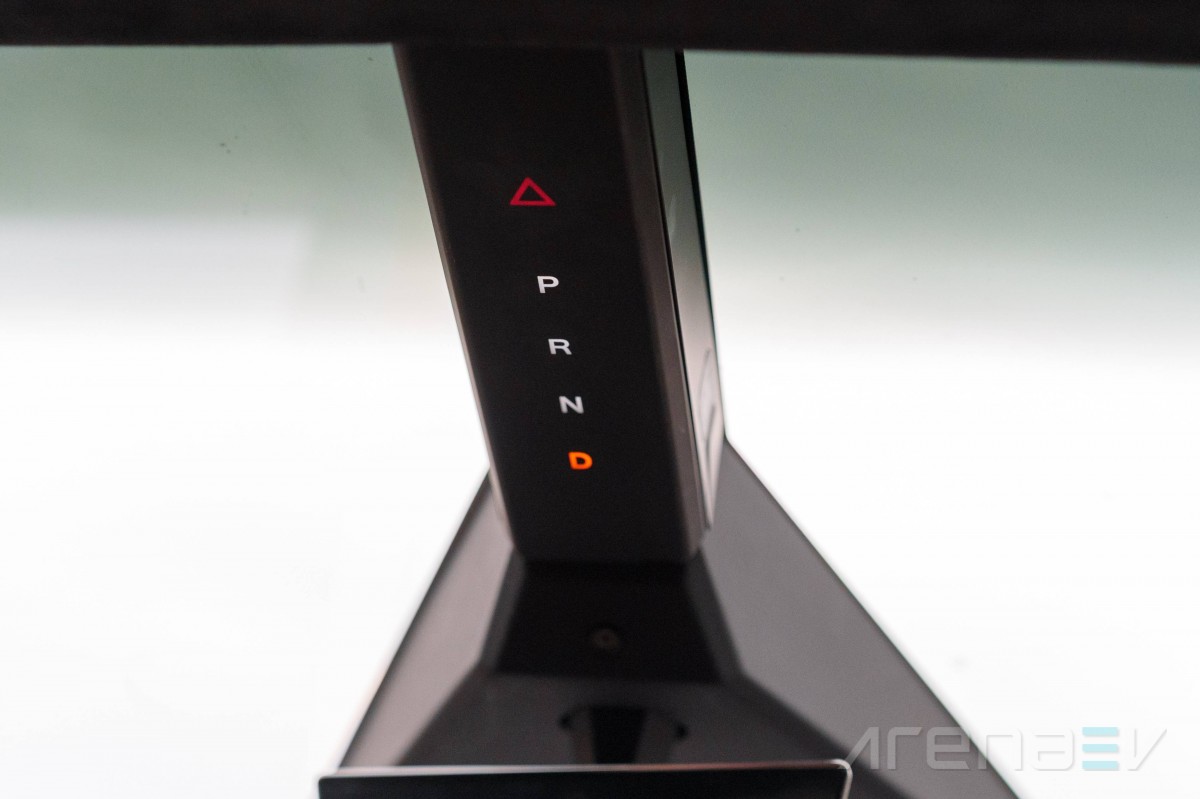
Talking about it, the rear-view mirror is almost useless in the Cybertruck and that’s why many owners even remove it. When the tonneau cover is on, you get no visibility whatsoever. Therefore, there is a section of the display below the speed readout while driving, which projects an image from a camera, essentially giving you a rear-view mirror at all times.
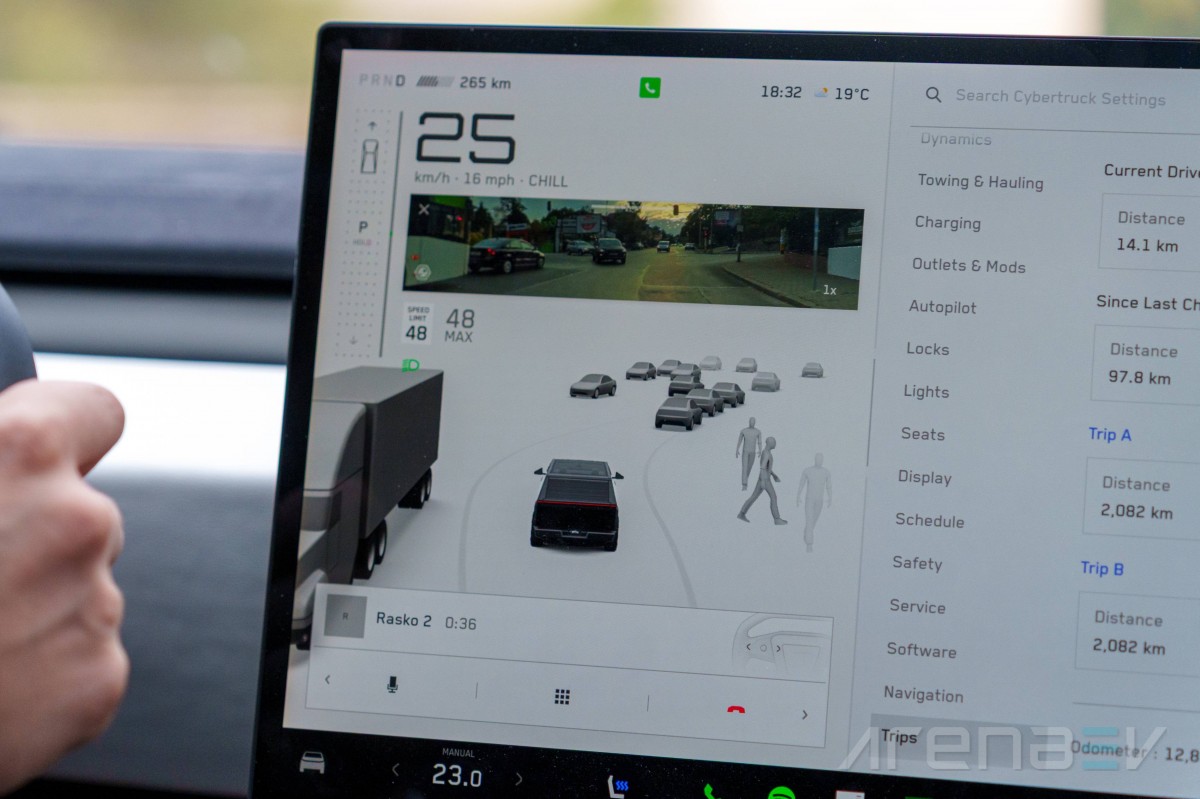
The back seats offer plenty of space. The Cybertruck is slightly shorter than most dual cab pickups, yet it offers equal or even more legroom inside. The sloping roof on the outside suggests compromised headroom but this isn't the case. Our 1.95 m (6'4") tall reviewer fits comfortably in the back with a lot of space to spare.
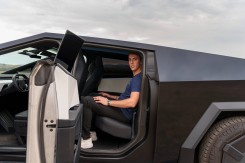
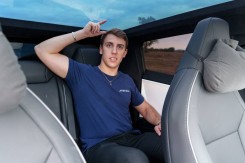
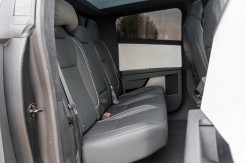
There is plenty of space in the back of the Cybertruck.
For a more comfortable experience the backseat passengers get a big tablet mounted between the front seats. It allows them to enjoy all sorts of entertainment outlets like Netflix, Twitch and YouTube, as well as browse the internet.
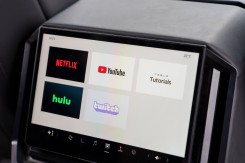
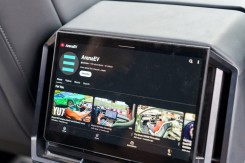
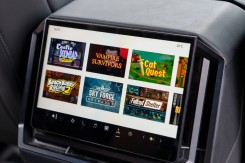
Different entertainment options in the back of the Cybertruck.
This tablet also controls the rear AC and you set your temperature and airflow. Interestingly, just like many luxury vehicles, you can move the front passenger seat from the rear. This is to facilitate loading of big items and easing access, but it can also be used to mess with whoever's riding shotgun.
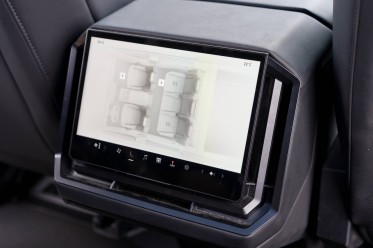
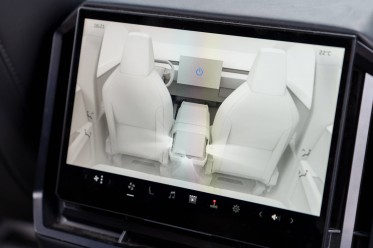
AC and seat controls are easy.
Storage & practicalities
A pickup truck is all about utility and the Cybertruck has gotten a significant amount of online hate for being less practical than rivals. The limited bed size with no option of extension, as well as the low level of the bottom of the tonneau cover really compromise the loading space. For most customers who want premium pickups that isn't as important as they rarely utilize the full capability of a truck anyway.

On the upside the bed features multiple sockets. You can charge multiple devices and even power work equipment or supply your camping site. Currently it is not adapted for European usage but that is easy to rectify with a transformer attachment you can buy from every electronics store. You can use it to power small devices (V2L - vehicle to load) or even connect the Cybertruck to your house and use it for electricity in case of emergency (V2G - vehicle to grid).
The main storage area in the bed has a volume of 67 ft³. A bed of 185 cm length and 130 cm width is not small by any means. Thanks to the lack of wheel arches protruding into the bed, the whole space is usable and you can stick wider items than in most trucks.
There is a large storage pocket underneath the main floor. It allows you to store smaller items and prevent them from rolling around. It also has a drain plug so you can use it for transporting beverages on ice for camping and road trips and then simply drain the water out of the car. This also helps with cleaning as you can use water for it.
If you don’t need passengers around the back but want to carry bigger objects inside, you can tilt the rear seats back and you get a deep tubular space. Thanks to the lack of a central tunnel, you can lay massive objects efficiently and slide them inside. This allows you to lock them securely inside the cabin if you don’t want to rely solely on the tonneau cover. This accounts for additional 54 ft³ of cargo capacity.
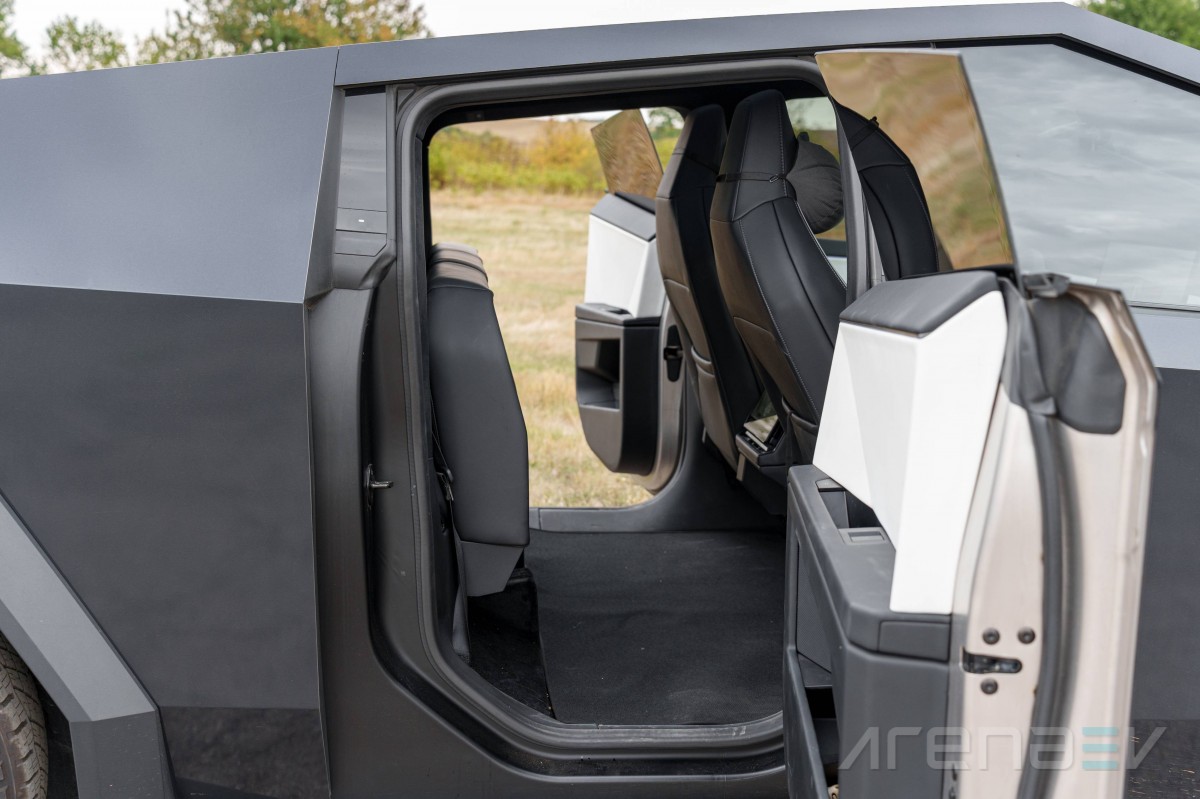
The frunk (front trunk) of the Cybertruck is large for a passenger vehicle. Given that traditional ICE pickups have an engine there, the additional 7.1 ft³ makes the Cybertruck a versatile truck with more secure storage than most traditional competitors.
Driving experience
Pickup trucks have only recently started becoming interesting to drive with the introduction of models like the Ford Raptor and RAM TRX. These vehicles transformed a vehicle people usually buy for work and turned it into a joyful experience with raw power and tremendous capabilities. Tesla more or less aims for the same demographic, arguably pushing things to even more ludicrous levels.
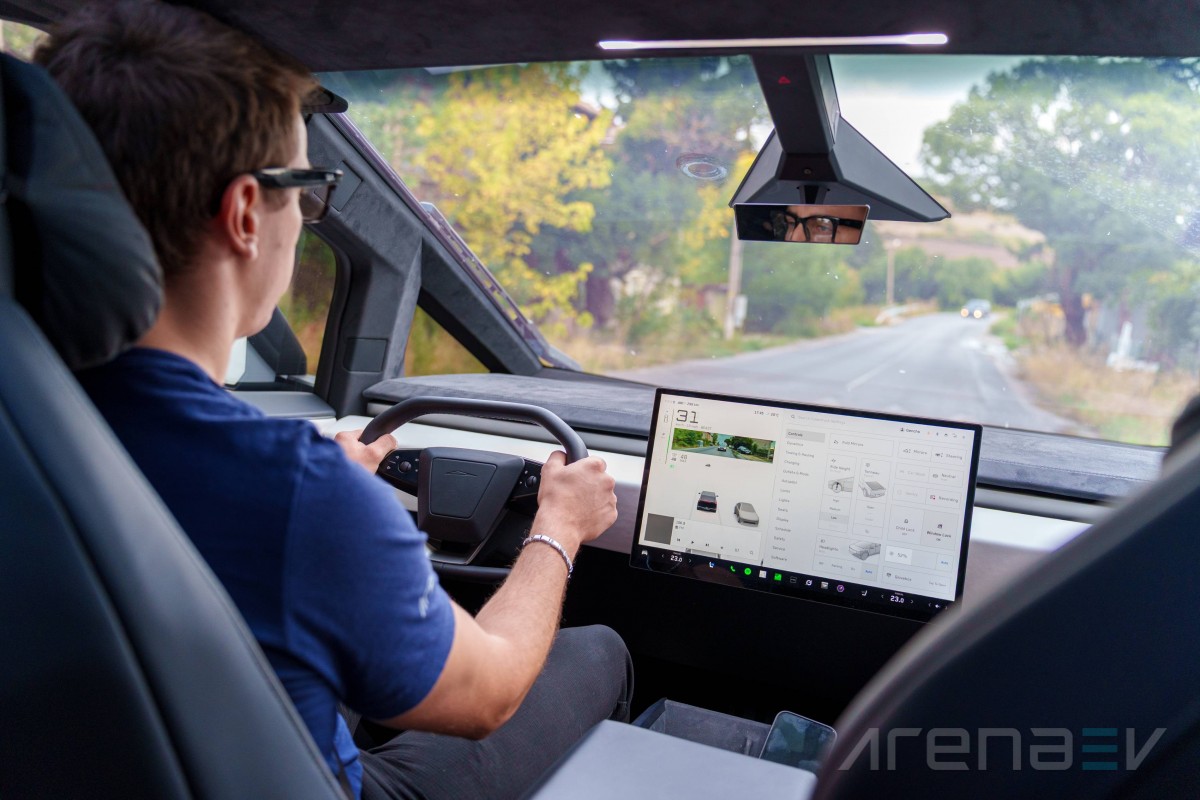
Granted, we are testing the Cyberbeast, which is the most powerful in the lineup and probably driving one of the other versions of the Cybertruck would be less insane, but if you wanted a tamer truck you probably wouldn't be looking at Tesla's model at all.
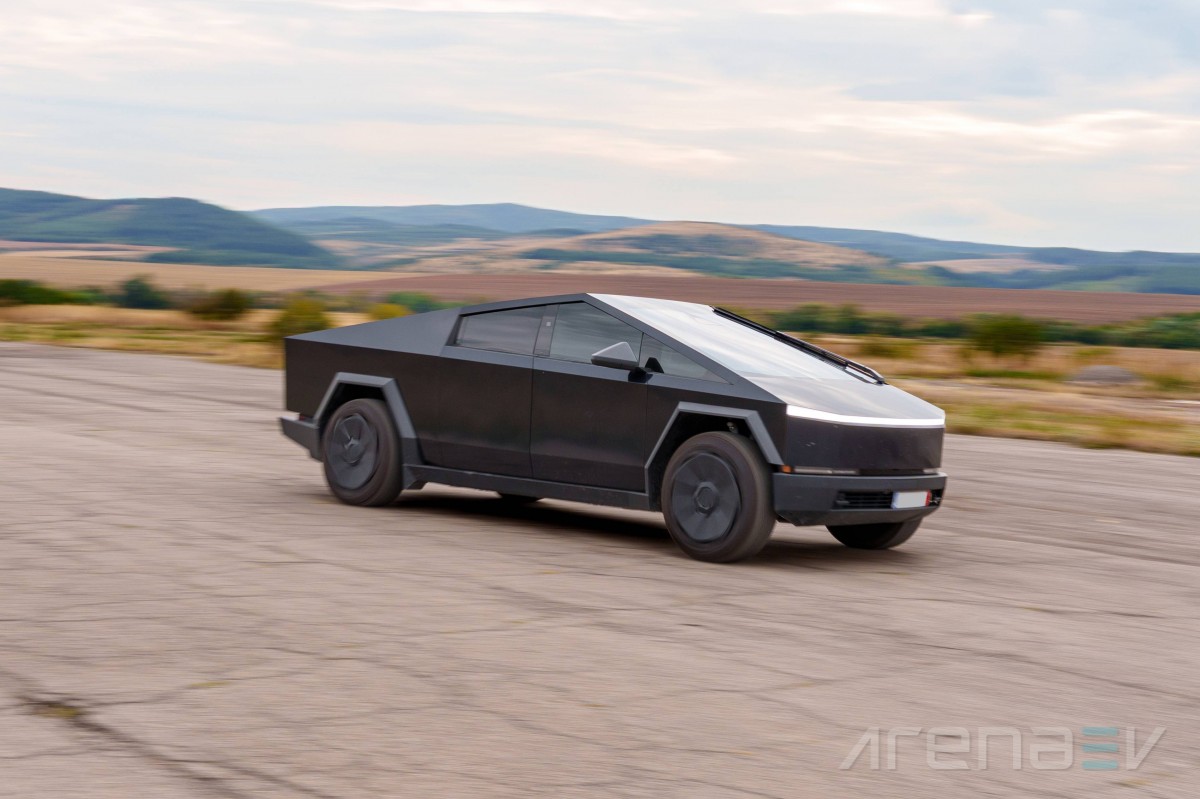
Speed is one of the most notable characteristics of the Cyberbeast - it accelerates ridiculously quickly for its size and leaves a long-lasting impression on the driver and passengers. A vehicle that weighs over 3 tonnes and accelerates to 62 mph in less than 3 seconds is borderline frightening. You can accelerate without realizing how fast you’re actually going and you should absolutely always think of the possible consequences of misjudging speed here.
You sit above everybody else in traffic as the seats are positioned way higher even than full-size pickups. With the suspension lifted to its highest setting, this effect is even more pronounced. This gives you a sensation of isolation and safety as a driver, looking down on everybody else on the road both figuratively and literally. It's a seating position akin to a lorry driver's, yet you get the feeling of a regular car based on the size and general responsiveness of the Cybertruck.
The steer-by-wire has gotten worldwide attention thanks to the absurdly small range of motion of 180˚. You don't get to steer with big movements and going hand over hand for tight corners. The most you ever need to do is a 90˚ turn to each side, which takes some getting used to but once you adapt you start questioning why more vehicles don't do it that way.

As for driving the Cybertruck around a European city, it feels surprisingly normal. Around Sofia, a city of very busy traffic with poor infrastructure, and tight streets all around the Cybertruck doesn't feel that hard to manage and from a driver's perspective isn't that different from a large SUV.
There is even added practicality of the huge tires with thick sidewalls, allowing you to go over bumps and our multiple potholes effortlessly. If you're ever too big for a street and need to scoot over on the sidewalk to pass, there is absolutely no need to worry about your tires or possible damages - the Cybertruck goes over everything the city might throw at it.
Once you start driving around town, you start getting all the looks from pedestrians and even drivers. Everyone who notices the Cybertruck takes some time looking and examining. The matte black wrap our test vehicle has helps making it appear even more alien. Part of the allure of driving a Cybertruck in Europe is that it’s a foreign car nobody expects to see and, you'll certainly get a lot of attention in one.
This is a double edged sword as you cannot go anywhere calmly and people take photos and even talk to you all the time. Some people love that sensation and some hate it, but there's just no avoiding it. Perhaps in the US this novelty has worn off with time, yet in Europe it's going to last a bit longer.
As for driving characteristics, the Tesla Cybertruck feels like just about any full-size pickup truck. It has tons of body roll and the chassis leans into corners a lot. However, the cabin is quiet and the sensation of being the king of the road makes long drives feel like a breeze.
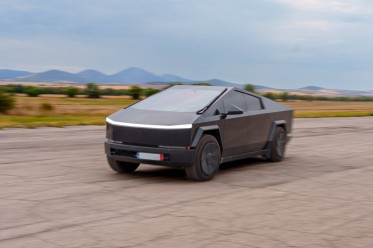

There aren't many vehicles with more road presence.
Despite the steer by wire, you get sufficient steering wheel feedback. However, you get absolutely no feedback from the squircle when going over speed bumps or potholes at speed. This is a weird sensation as you can feel it through the rest of the car, but the steering wheel sends you nothing whatsoever.
At low speeds the rear wheels turn up to 10˚ opposite to the front ones to allow for better maneuverability. This helps making some tight turns and parking maneuvers that would otherwise be impossible. At higher speeds, all four wheels turn in the same direction to improve stability and reduce side drag. This allows the Cybertruck to feel significantly smaller than it is and offers better usability in all conditions.
You have probably heard or seen the news, where Cybertrucks infamously fail even light off-road trails. Based on our testing, this is more than likely due to the Goodyear Wrangler Territory RT tires. Even though they are specifically produced for the Cybertruck, they are aimed for road usage and have a shallow tread pattern despite their rugged appearance on the side. Maybe with meatier tires the Cybertruck could be a better off-roader but with the stock ones we found it just inadequate off the road.
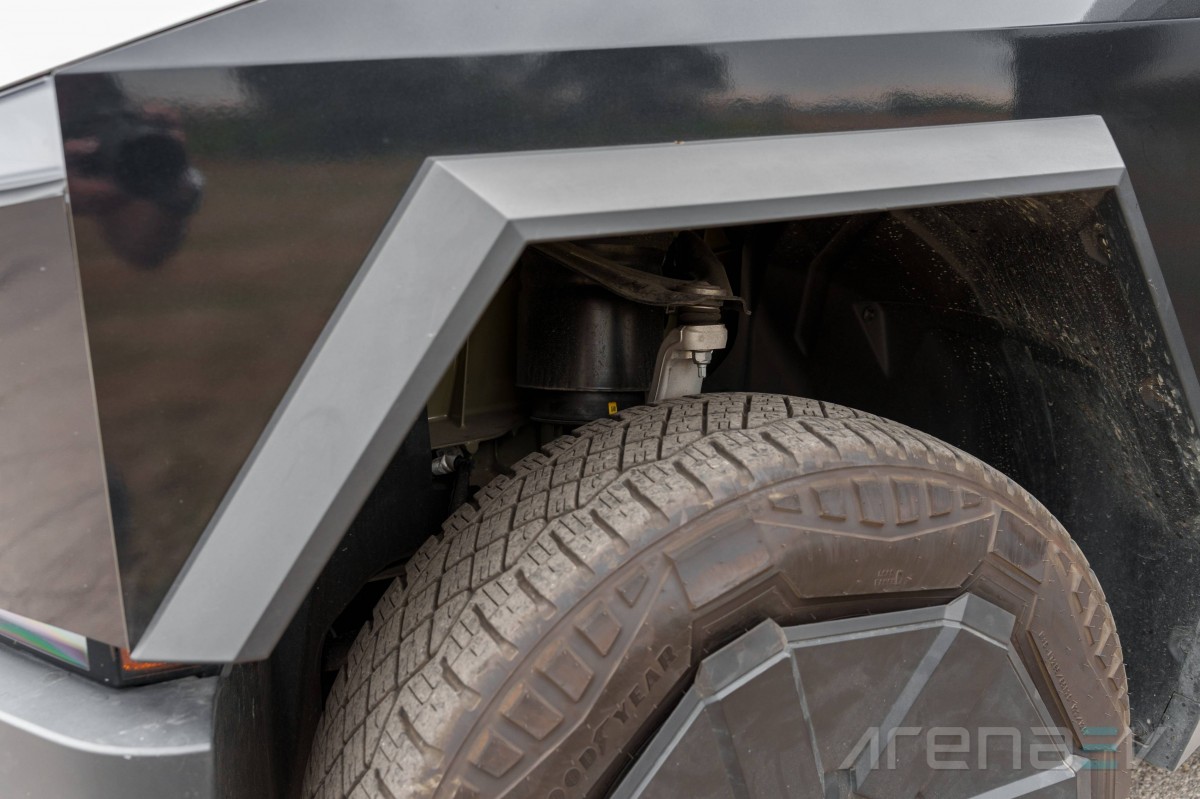
The suspension can lift or lower depending on the drive mode and that can prove quite useful in many cases. The lowest setting makes you feel closer to the road, with better handling, optimized airflow and quickest acceleration. The normal setting has the softest ride, while the raised one makes you feel unstoppable by any obstacle and allows you to climb over anything.
FSD (full self driving) is not available for European Cybertrucks yet and with the truck itself unlikely to make it here officially that may well be the case forever.
On the flipside the Cybertruckdoesn't have to follow European guidelines and you can permanently disable safety assist features. You can no longer do that in modern vehicles created for the European market and have to disable all intrusive assists at every start.
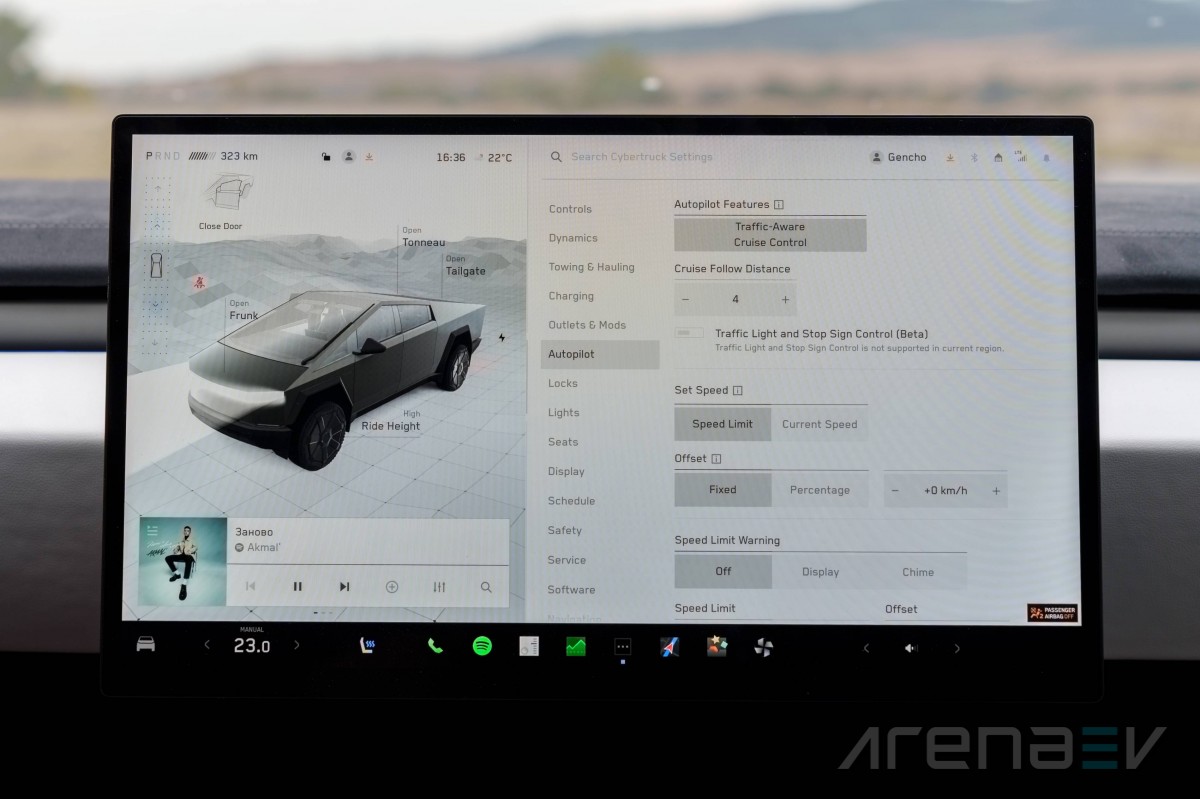
Ride comfort
Tesla has made the Cybertruck comfortable with reduced bounceback after potholes and speedbumps. This helps you gather better information from the road, especially since the steering wheel doesn’t give you any. By no means is the suspension firm but it isn't floaty either. It is a great balance between daily driving and long distance trips, without shining in either.
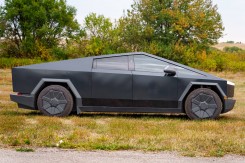
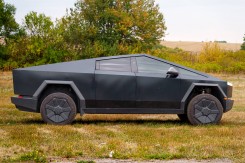

Long suspension travel means different comfort based on drive mode.
Tech features
Technology, while impressive, is just as in any other Tesla model. The infotainment is familiar and that makes it even easier to use. Once you get familiar with Tesla's software and spend some time in any of its vehicles, every next one feels more or less the same.
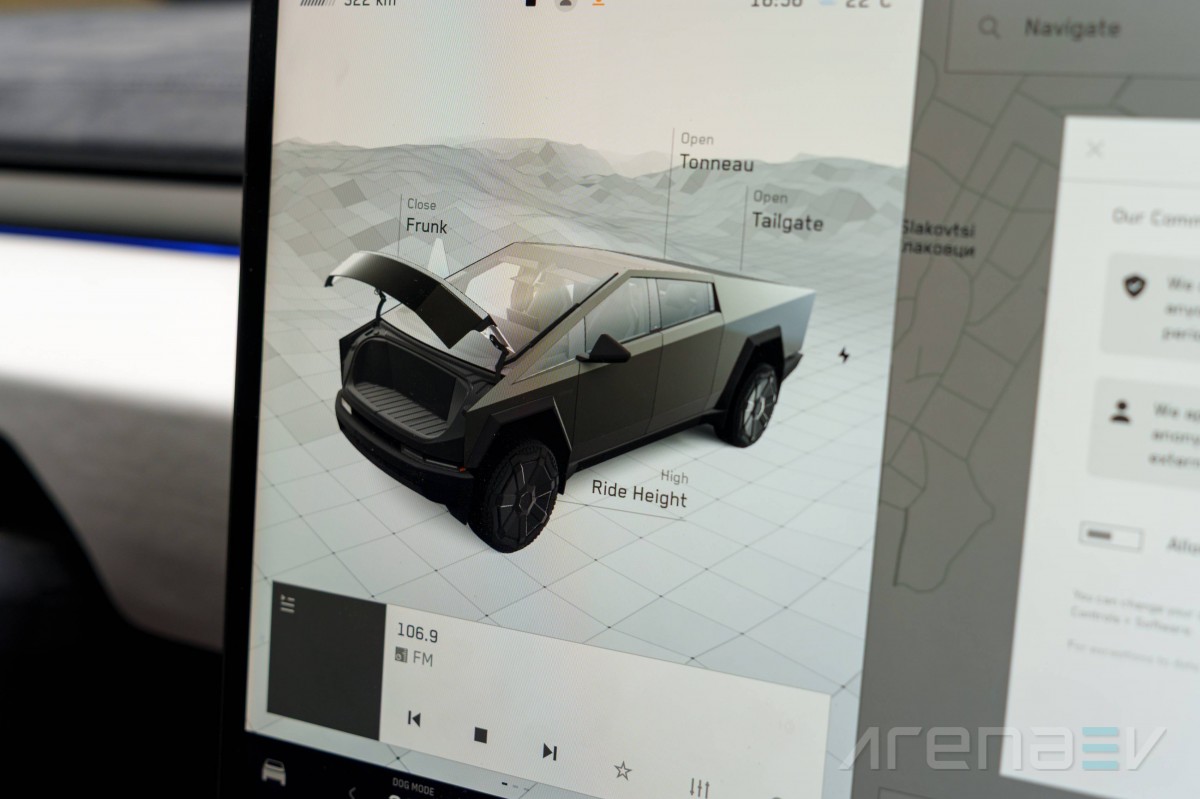
And since it's different from the way most other makers approach things, once you get used to it, find other infotainment solutions difficult and unintuitive. This fact allows for quick transfer onto a new model, however that removes the novelty and experience of stepping into a new car since the only interactive element behaves the same as the old one.
In the main menu when the car is stationary you get all sorts of driving information data and a big image of a Cybertruck. When you tap on its driver-side window a few times, the glass shatters and the speakers play the sound of Elon Musk from the infamous mishap when the Cybertruck was first introduced. It was supposed to withstand a hit from a hammer but unfortunately broke during the demo, causing a flood of memes.
Starting with the settings, you get a Controls menu, from which you can select different parts of the vehicle and move them accordingly. From there you set the mirrors, steering wheel, locks and control the Sentry surveillance mode. Furthermore, you can select the desired ride height when exiting and entering the Cybertruck and even open and close the tonneau cover from the inside.
Another thing controlled from that menu is the glovebox, which makes that portion of the menu display especially useful and important.
Next, you get to control the drive modes and vehicle settings. This is where the Cybertruck slightly differs from other Tesla models as it has off-road regimes and the Beast mode that allows for the quickest acceleration.
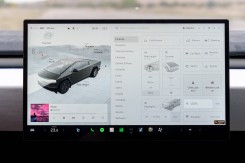
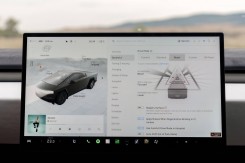
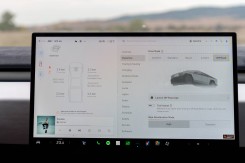
The Cybertruck offers unique features for a Tesla.
Another menu most Tesla models don’t offer is the towing and hauling menu, which allows you to set the parameters of the trailer so the Cybertruck can adapt its performance accordingly.
An important feat for an EV is the charging situation. You can set preferences for charging spots, open the charge port and limit power output directly from the center display. As we mentioned, you can also control the V2L and V2G preferences and settings.
As we mentioned, FSD is not available yet so the Autopilot settings become slightly redundant. You can also control the traffic sign recognition and turn on/off the speed limit warning.
The center display can also be used to turn on the seat heating and ventilation. It also lets you move the passenger seat forward and back, allowing the driver to quickly adjust the space if needed.
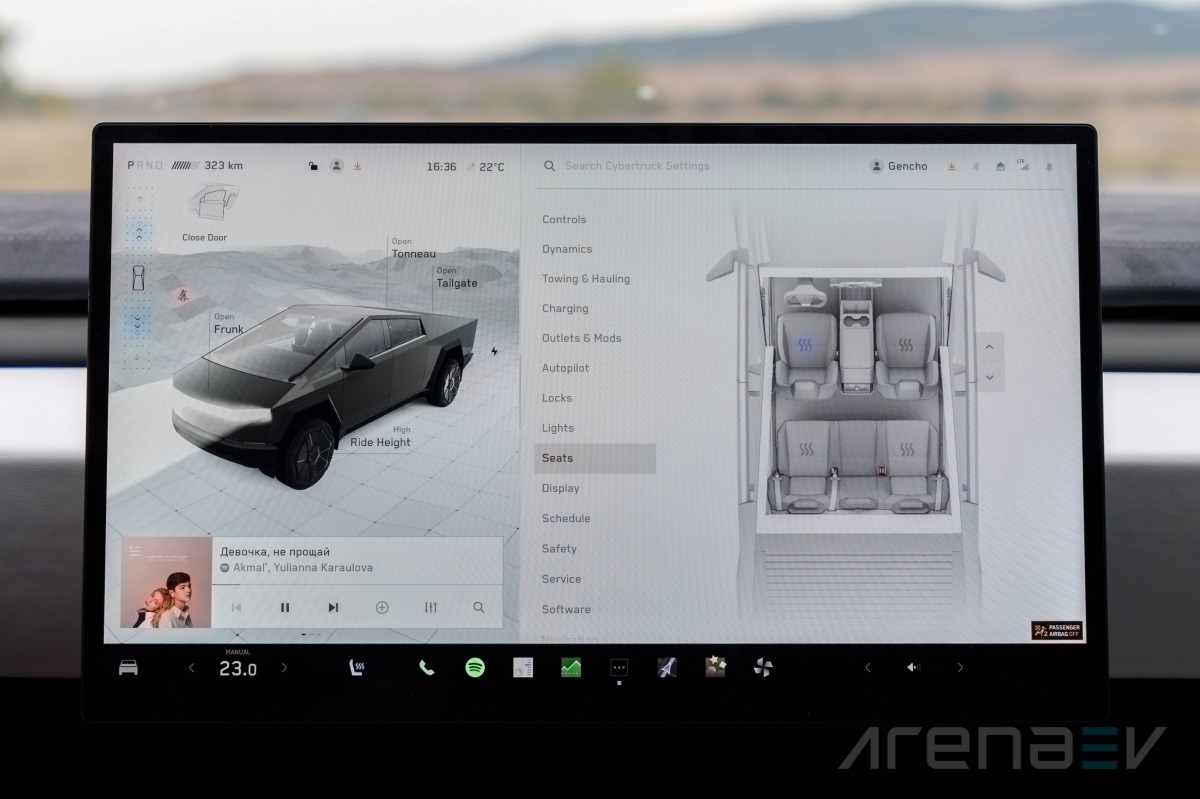
One thing that the Cybertruck we tested doesn’t have yet is the map and navigation software. It requires a special procedure only a handful of places in Europe offer and is often in excess of $7,000. The car can now show its actual location, yet once you start navigating to a place, it glitches and starts thinking it’s again in the US.
Tesla famously offers is a free Spotify premium subscription for each of their models. This had to be adapted so that the internet functions can work in Europe, as well as many other connected features.
Grok, the AI assistant, is available on-board. You can either speak to it or prompt it by typing when stationary. It works well and quick, yet its capabilities are not as broad as on a phone or desktop.
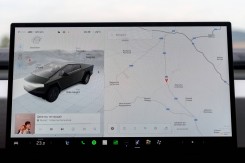
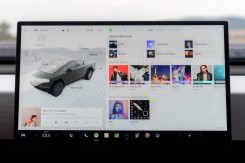
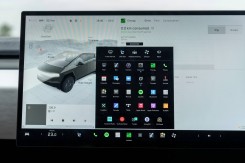
Some internet features work well, others not so much!
You can even surf the internet or ask Grok to do it for you. Naturally, we advise that you tell it to open arenaev.com and ask it to read our latest review.
The usual gimmicks like Santa mode, Mars surface and the farting seat are naturally present on the Cybertruck, as well.
The camera system is thankfully great in the Cybertruck. You get a nice 360° camera system with tremendous picture quality. This is a vital feature to have as it makes the Cybertruck much better suited for daily usage. It has such massive blind spots that without the camera system you're almost certainly going to hit something every time you park.
Dog mode is a great feature all Tesla vehicles have and it displays on the center screen the temperature inside, affirming to passers by that your pet is doing fine. Interestingly, Tesla has gone through the trouble of creating a different image for the dog, which is now angular and steampunk, fitting for the exterior of the Cybertruck.
Cabin noise
The cabin of the Cybertruck is impressively quiet for such a massive vehicle with such poor aerodynamics. The results it achieved on our tests rival much smaller and equally premium vehicles. Only at high speeds exceeding 62 mph do you start noticing wind noise entering the cabin. There are no disruptive whistles at any speed and the tire noise is almost always equally neutral.
Sound level tests are carried out with a specialized sound level meter placed in the car's cupholders. The test is conducted with air conditioning and radio off and while maintaining a steady speed.
Acceleration and braking
Testing the Tesla Cybertruck Cyberbeast means we get to experience the best acceleration this behemoth of a vehicle is capable of. We had to do the testing with three people in the vehicle this time, meaning that you can actually do slightly better if you are the only one inside. Tesla promises 2.7 seconds from 0 to 62 mph, which is a ridiculous figure for any vehicle, let alone a pickup that weighs over 6,610 lb. We managed to do 3.04 seconds for that sprint, which is still massively impressive. Perhaps a better surface and fewer passengers will bring you closer to the official claims.
Arguably more important is the braking distance. Such a heavy and sharp-edged vehicle can easily cause damage and therefore a good brake kit is a must. The Cybertruck Cyberbeast managed to stop completely from 62 mph in 40 m (131’3”). Normally, this figure wouldn’t impress us at all, but given the size of the thing and its high center of gravity, this result is actually very solid. Tesla learned the tough lession of the initial Model S Plaid, which had braking performance unsuitable for its power output.
Acceleration and deceleration are measured with a RaceBox device inside the car. Testing is done with a single person inside the car, with air conditioning and traction control off.
Consumption
A vehicle with such proportions can never be economical. However, Tesla has done the best it can and the results are applaudable. It is among the worst performing vehicles in terms of efficiency but because of the huge battery the range figures are very good. The Cybertruck uses minimal energy to function and power its systems and that’s how it gets left with a lot of energy to move forward. For our extensive thoughts on the Cybertruck’s efficiency, check out our dedicated range test article.
We measure consumption by driving at constant speeds on an identical test route during the day. Testing is conducted with air conditioning, all safety systems and radio on. The data comes from the vehicle's board computer. Specific testing parameters such as ambient temperature are mentioned in the text on a case by case basis.
You can use the widget below to find out the Tesla Cybertruck Cyberbeast’s range in every combination of speed and temperature you might need. We've used our real world tests and a complex model to provide an estimate that should be as close to the actual performance as possible.
Charging speed
As the Cybertruck is US-only, it needs to go through an adaptation process when entering any European country to match the charging infrastructure we have here. In this particular Cybertruck, the whole transition process is now complete and it can easily charge at all stations, public chargers and home sockets.
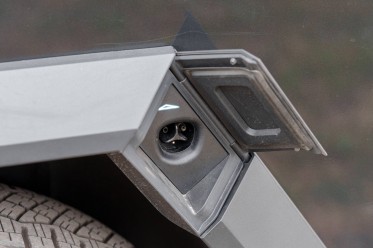
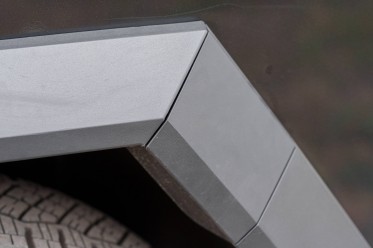
The charge port is small and integrated into the wheel arch.
In the video below we show you how the Bulgarian owner has adapted the American Tesla home charger to work with European current levels and plug easily into our sockets. All it needs is a transformer and a plug adapter and it’s ready to go.
Competition
Tesla has created a unique product with virtually no competition. You see the Cybertruck is much more than a pickup - it’s a statement on wheels. Whether or not you like the status it oozes, it’s simply a fact that cannot be avoided. As a pickup, the Cybertruck does okay, perhaps worse than most of the established brands, but not disastrous. But as a complete package it's a very unique one.
The first competitor of the Tesla Cybertruck was announced with the sole intention being better and first to hit market - Ford F-150 Lightning. It comes with traditional styling, recognizable name and proven quality over the years. The F-150 Lightning has a longer but narrower bed, less powerful motors, bigger frunk and similar interior space.
The second rival we chose is the Chevrolet Silverado EV. It has a more rugged look, very similar size, as well as much bigger battery. It isn't as quick or outlandish on the outside, but the overall experience is quite similar to the Cybertruck. Both vehicles are very expensive when new and are heavily depreciating with each day, so a used one is the wiser choice with both.
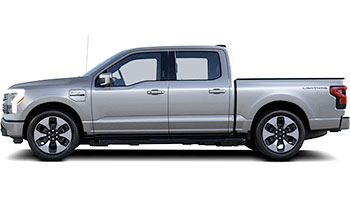
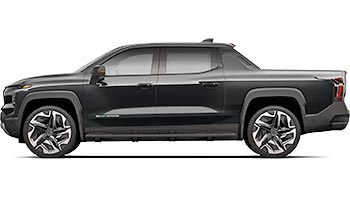
Ford F-150 Lightning XLT Extended Range 2022 - • Chevrolet Silverado EV RST 2022 -
Verdict
The design of the Cybertruck is so striking that you can't go anywhere unnoticed. Elements that are usually normal in most vehicles are radicalized to be form first, functionality second. The almost-bulletproof stainless steel alloy is just another case "we did it because we can" and the glass managed to get the people talking six years ago by not being as tough as advertised.
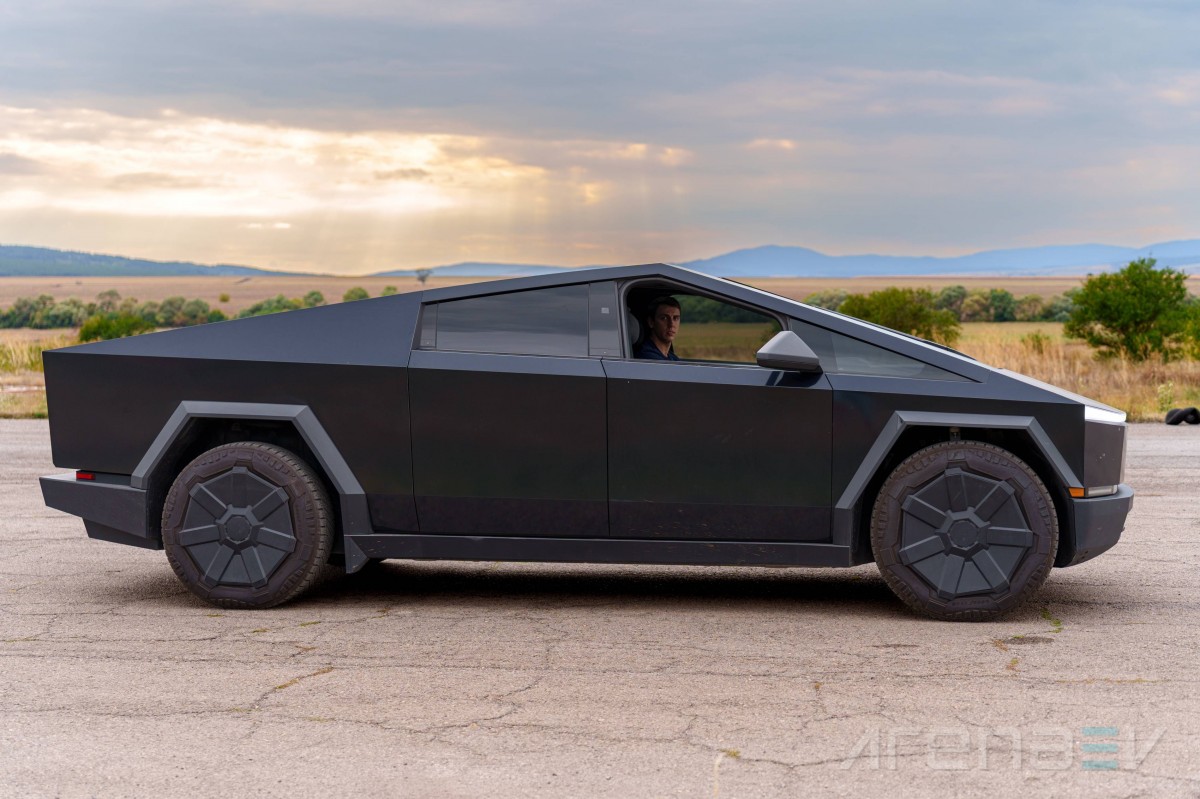
If you want the Cybertruck primarily for truck usage and work purpose, you are better off looking elsewhere. The lower trims will likely better suit that task but we don't feel that is the primary function people buy the Cybertruck for.
The Cybertruck aims for a totally different demographic, which is wild and wants to be noticed. It is for people who want to brag with what they have and feel happy every time they drive or simply look at their car.
And it may well have succeeded in carving a big niche for itself with that proposal. There's no shortage of such buyers everywhere around the world.
The reason the Cybertruck failed so badly in the market is really not with the truck itself. The polarizing and questionable build quality may have turned many a potential customers, but the acceleration, range and overall driving experience would have probably been enough to attract a few hundred thousand buyers.
Elon Musk's own promises at the Cybertruck's announcement were probably the main culprit - even a good product may be disappointing when it costs twice as much as you expected and offers about half the range. And when delivering a unique vehicle such as this one managing the expectations would have been the smart move, since as we said it really has no direct rivals.
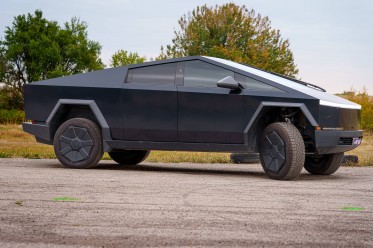
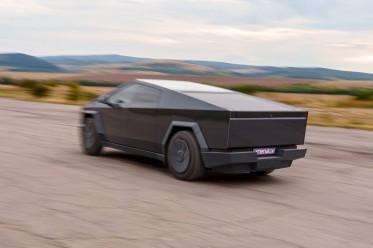
Nothing else on the road looks as wild.
Then there's Musk's political involvement, which really soured Tesla's brand so many people no longer want to associate with it. That might not be too bad for a Model 3, which aims to compete on technology and value for money, but for a statement on wheeles such as the Cybertruck it's a disaster.
The Cybertruck will remain a piece of history and we are unlikely to see something so radically different from the normal in the automotive world in the near future. And if you fancy being the center of attention now in Europe there's few other solutions as effective as this one.
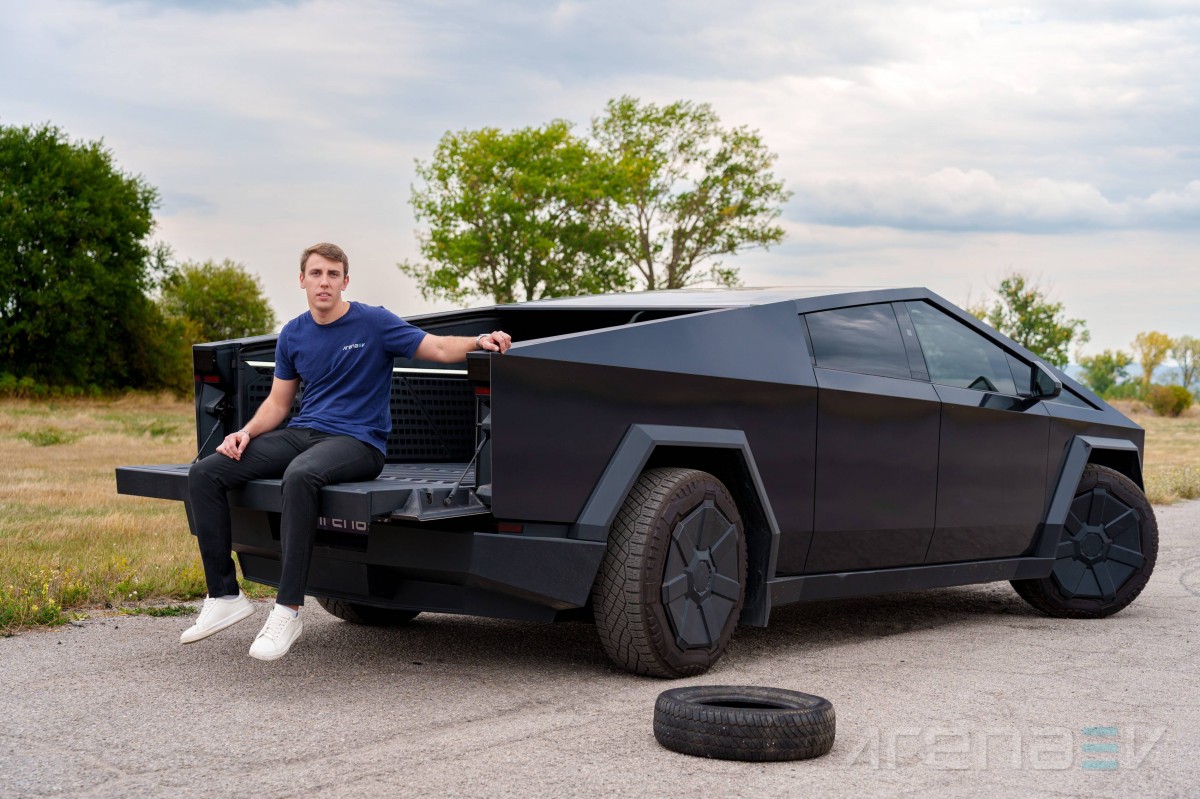
Pros
- Extravagant looks.
- A rare sight in Europe.
- Lots of storage space and niches.
- Ability to have driver aids always disabled.
- User-friendly multimedia interface.
- Great maneuverability for the size.
- Simplified interior.
- Great efficiency for the size.
- Quiet interior.
- Ridiculous acceleration.
- Great braking for the size.
Cons
- Extravagant looks.
- Only available in the US.
- Parts are hard to source.
- Negative public perception.
- Fails to match originally promised price or range.
- No European support and maps.
- Need of extensive and expensive European adaptation.
Reader comments
- Inthebin
- TXa
Nott only is it poor attempt at a vehicle (can't survive a carwash), you'd need to have such a tiny dick to even consider one. Microscopic.
- Venelin
- 3iv
I love this truck! I see it every day and I daydream of having it one day. ESPECIALLY IN PINK
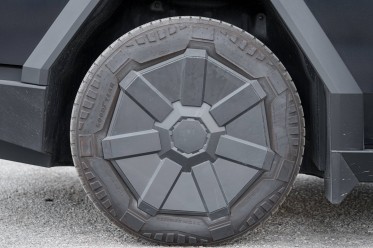
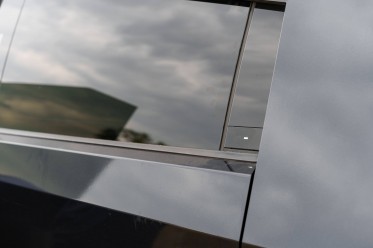

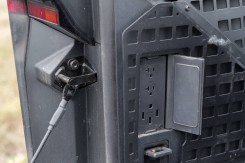
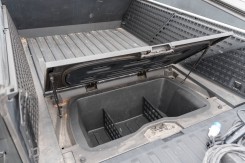
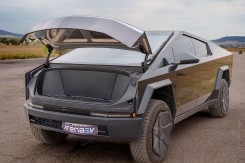
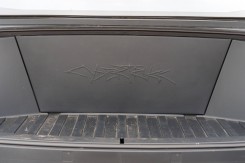
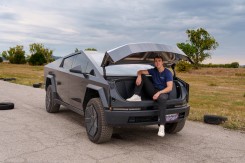
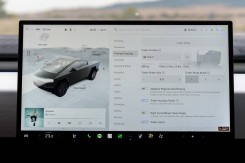
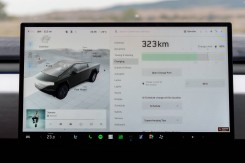

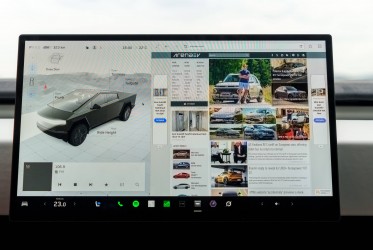
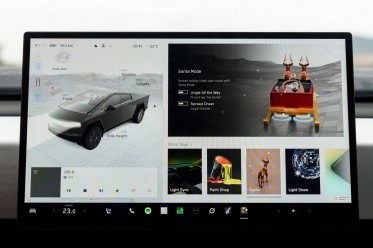
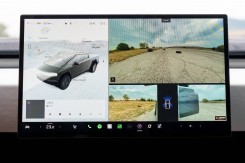
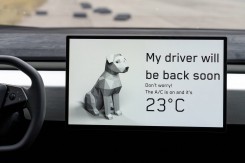
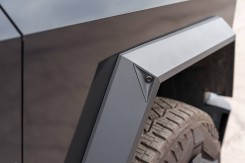
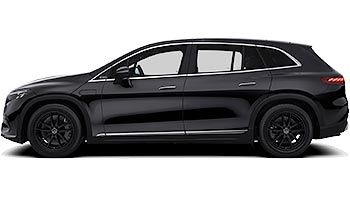
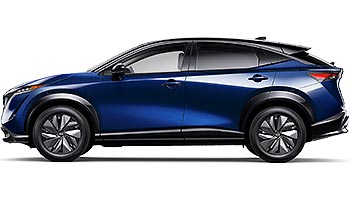
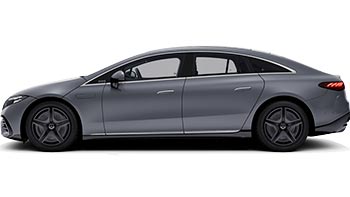
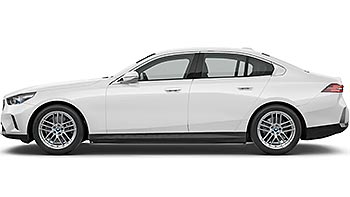
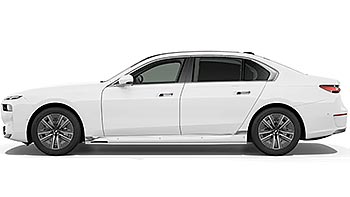
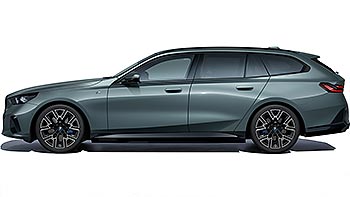
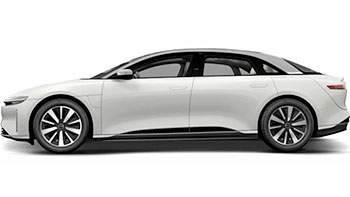
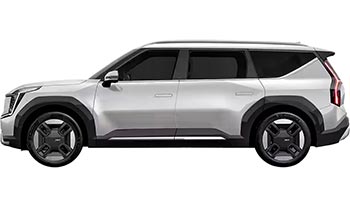
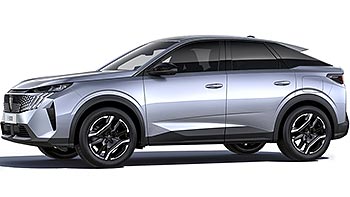
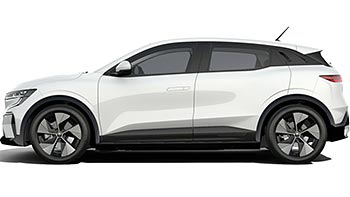
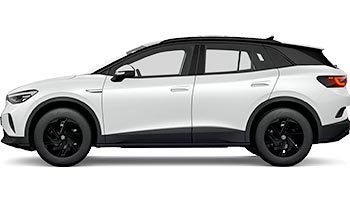
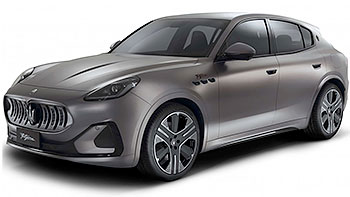
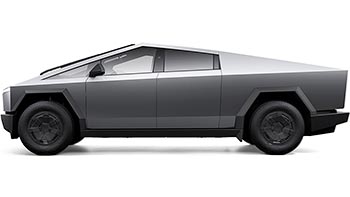
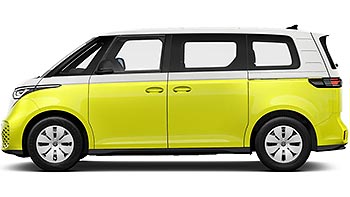
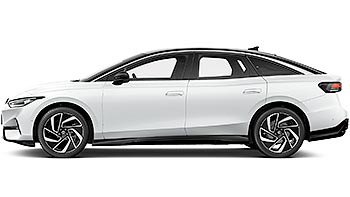
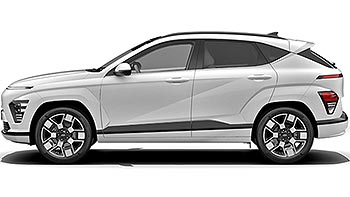
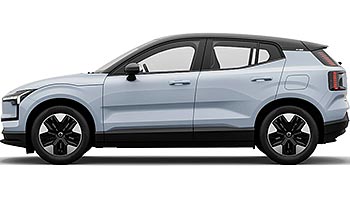
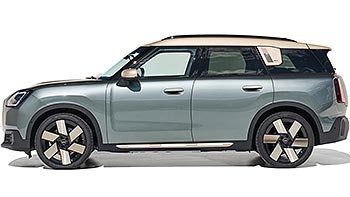
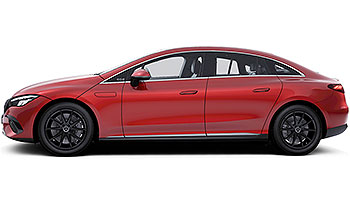
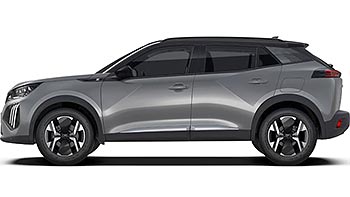
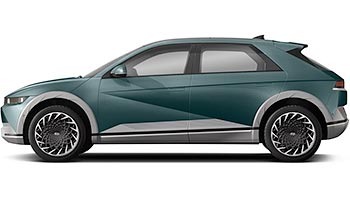
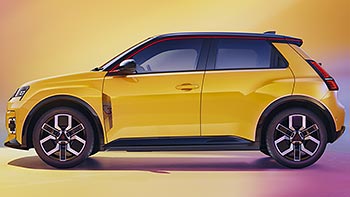
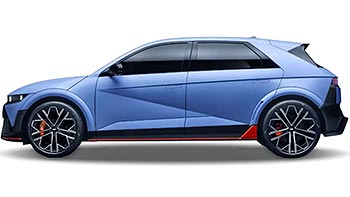
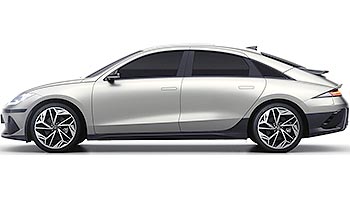
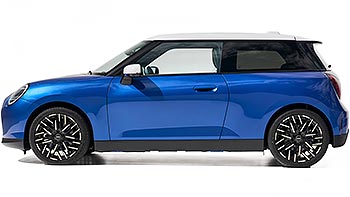
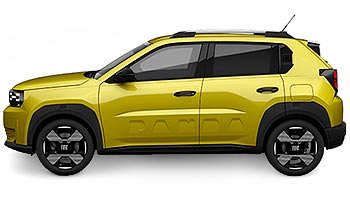
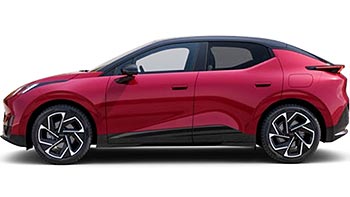
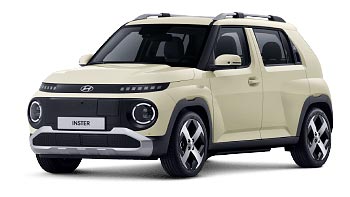
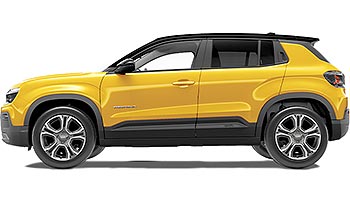
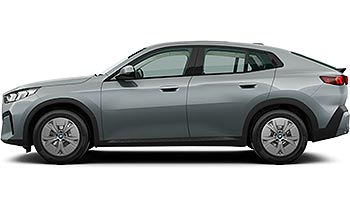
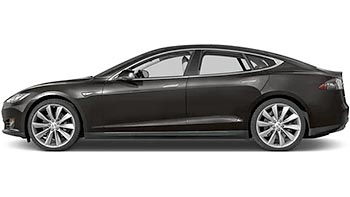
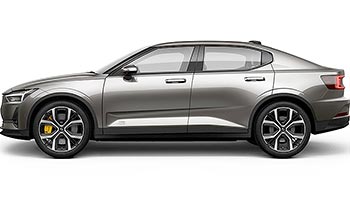
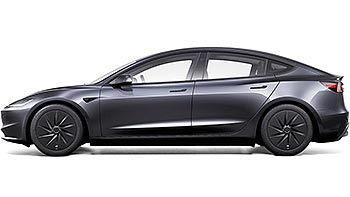
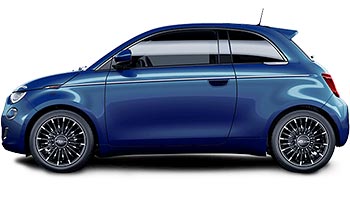
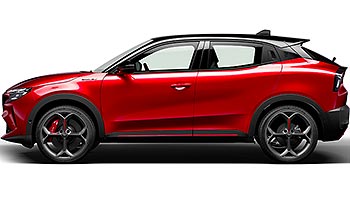
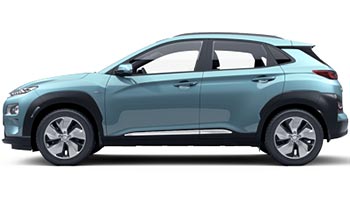
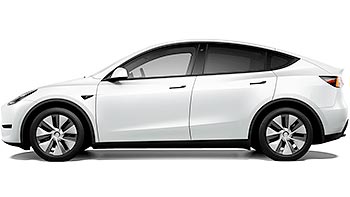
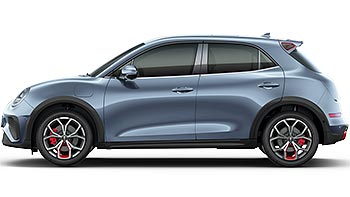
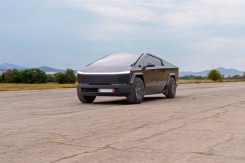
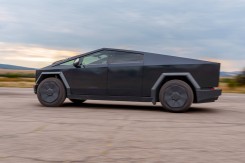
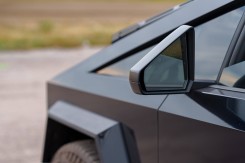

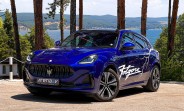
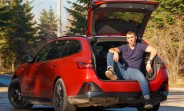
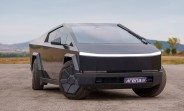

Facebook
Twitter
Instagram
RSS
Settings
Log in I forgot my password Sign up